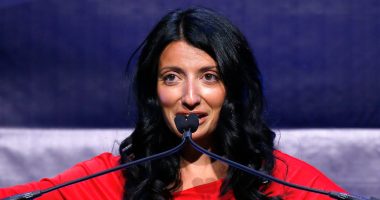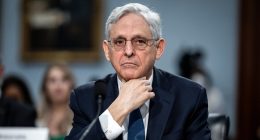
Richard Robinson, who took over his father’s magazine company, Scholastic, and transformed it into a behemoth in the children’s book industry with the “Harry Potter” and “Hunger Games” series and titles like “The Magic School Bus” and “Goosebumps,” died on Saturday in Chilmark, Mass., on Martha’s Vineyard. He was 84.
His son Maurice said the cause was a sudden stroke or heart attack while Mr. Robinson was out for a walk near the family’s home on the island. He lived in Greenwich Village.
Under Mr. Robinson, the company generated as much as $1.6 billion in annual revenue to become the largest publisher and distributor of children’s books in the world. Under his stewardship it expanded its reach with print and digital instructional materials, remedial textbooks, educational and entertaining videos and software, three dozen periodicals and reading clubs.
In addition to Joanna Cole and Bruce Degen’s zany field trips on the “Magic School Bus” and R.L. Stine’s ”Goosebumps” horror stories, Scholastic series include Dav Pilkey’s “Captain Underpants,” Norman Bridwell’s “Clifford the Big Red Dog” and Ann M. Martin’s “The Baby-Sitters Club.”
In 2000 Scholastic acquired Grolier, one of the largest encyclopedia publishers.
Scholastic shattered sales records by venturing into unchartered territory with Suzanne Collins’s young-adult dystopian novels in the “The Hunger Games” trilogy, which roosted on The New York Times best-seller lists for more than 260 consecutive weeks, and by acquiring the American rights from Bloomsbury for J.K. Rowling’s blockbuster series on the boy wizard Harry Potter; those books first appeared in the United States under Scholastic’s Arthur A. Levine imprint. Scholastic’s trade publishing division has sold 180 million copies in the Potter series since 1998.
Mr. Robinson, who often said he considered reading a civil right, prided himself in reviving books and promoting narrative storytelling as a muscular rival to video games in the competition for children’s attention.
“Publishing the ‘Harry Potter’ books has changed the company and made it more visible,” he told The New York Times in 2005. “But what everybody feels the most about Harry Potter is that it brought kids to the reading process who had never been readers.”
“Research says that if children choose and own their books, they are much more likely to finish them,” he said in 2017, when he accepted the Literarian Award from the National Book Foundation.
Part of Scholastic’s mission, he said, was to address relevant public issues and even subjects that had been taboo in children’s literature.
“We are dealing with issues like global warming, racial inequality in a way that doesn’t polarize the issue but gives points of views on both sides and is a balanced, neutral position but not in a sense of being bland,” he told The Associated Press last year. “Here is what people are saying. Here are questions you can ask to formulate your own view.”
In 2019, when he was honored by the literary and human rights group PEN America, he recited a litany of banned Scholastic publications since the 1930s and added, “Despite these controversies and temporary bans, schools have relied on our balanced approach to help the young gain basic knowledge about their world, with the larger goal of helping kids know how to build and maintain a fragile democracy.”
The librarian of Congress, Carla Hayden, said in a Twitter post on Sunday that Mr. Robinson had left a “lasting legacy” as a supporter of libraries and reading.
Maurice Richard Robinson Jr. was born on May 15, 1937, to Maurice and Florence (Liddell) Robinson and grew up in and around New York City.
His father, returning from World War I and noticing an increase in high school enrollment, started his magazine company, the Western Pennsylvania Scholastic, in 1920. It did not become profitable until the 1950s, but the elder Mr. Robinson stuck with it.
“We’re big, from filling in the niches,” his son said.
Richard graduated from Phillips Exeter Academy in New Hampshire and, magna cum laude, from Harvard College with a bachelor’s degree in English. He later studied at St. Catharine’s College, part of the University of Cambridge in England, and at Teachers College at Columbia University.
“I wanted to be a writer but floundered a little and thought I should get a job to support my writing, so I became a teacher for two years in Evanston, Ill.,” he told The Times in 2005.
In 1988, in a previous interview with The Times, he said, “I taught kids who would graduate from Radcliffe summa cum laude, to kids who would get football scholarships, to kids who would go into the Marines, to kids who would go to jail.”
(Many participants in Scholastic’s annual student Art & Writing Awards went on to fame, among them Sylvia Plath, Bernard Malamud, Joyce Carol Oates, Richard Avedon, Stephen King, John Lithgow, Ken Burns and Lena Dunham.)
Mr. Robinson joined Scholastic as an associate editor in 1962. In 1974, after the man his father had been grooming as his successor died suddenly, Richard became president. He was named chief executive a year later and elected chairman in 1982.
In addition to running Scholastic, Mr. Robinson served as chairman of the Association of American Publishers and led the capital campaign in 1988 for the Children’s Museum of Manhattan’s new home on West 83rd Street.
In 1986, he married Helen V. Benham, who worked for 33 years at Scholastic as an editorial director, publisher and corporate vice president; they divorced in 2003, but she remained a confidante.
In addition to his son Maurice, who is known as Reece and who was a consultant to Scholastic, his survivors include another son, John, who also consulted with the company; a brother, William; and three sisters, Sue Morrill, Barbara Buckland and Dover Ford.
When he was a child, Mr. Robinson recalled, he never tired of hearing his mother read to him from “The Little Engine That Could” and “Mr. Popper’s Penguins.” His favorite novel of all time, he told The Times in 1999, was James Joyce’s first novel, “A Portrait of the Artist as a Young Man,” which inspired him as publisher of Scholastic.
Joyce’s novel was a coming-of-age story but by no means a children’s book. It begins, though, as many a fanciful story for young readers might, with the words “Once upon a time.”
Source: | This article originally belongs to Nytimes.com









